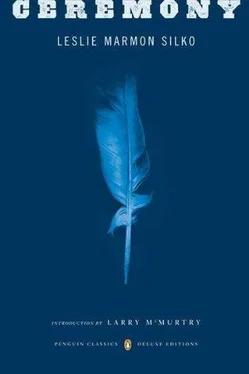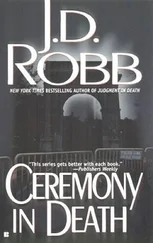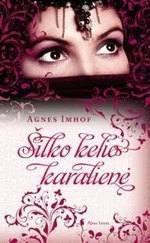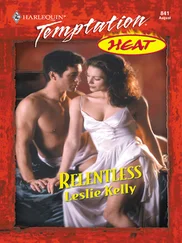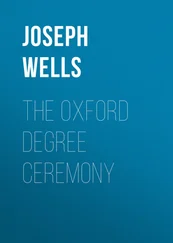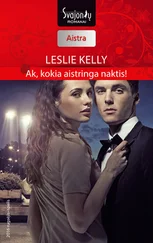and he had everything
he’d say
“I tell you what
since I’m so good and generous
I’ll give you one last chance.
See that rawhide bag hanging
on the north wall over there?
If you can guess what is in that bag
I’ll give you back all your clothes and beads
and everything I have here too—
these feather blankets
all these strings of coral beads
these fine white buckskin moccasins.
But if you don’t guess right
you lose your life.”
They were in his power.
They had lost everything.
It was their last chance.
So they usually said “okay”
but they never guessed
what was in the bag.
He hung them upside down in his storeroom,
side by side with the other victims.
He cut out their hearts
and let their blood run down
into the bins of blue cornmeal.
That is what the ck’o’yo Kaup’a’ta, Gambler did,
up there
in the Zuni mountains.
And one time
he even captured the stormclouds.
He won everything from them
but since they can’t be killed,
all he could do
was lock them up
in four rooms of his house—
the clouds of the east in the east room
the clouds of the south in the south room
the clouds of the west in the west room
the clouds of the north in the north room.
The Sun is their father.
Every morning he wakes them up.
But one morning he went
first to the north top of the west mountain
then to the west top of the south mountain
and then to the south top of the east mountain;
and finally, it was on the east top of the north mountain
he realized they were gone.
For three years the stormclouds disappeared
while the Gambler held them prisoners.
The land was drying up
the people and animals were starving.
They are his children
so he went looking for them.
He took blue pollen and yellow pollen
he took tobacco and coral beads;
and he walked into the open country
below the mesas.
There, in a sandy place by a blue flower vine,
Spiderwoman was waiting for him.
“Grandson,” she said.
“I hear your voice,” he answered
“but where are you?”
“Down here, by your feet.”
He looked down at the ground and saw a little hole.
“I brought you something, Grandma.”
“Why thank you, Grandson,
I can always use these things,” she said.
“The stormclouds are missing.”
“That Ck’o’yo Kaup’a’ta the Gambler has them locked up,”
she told him.
“How will I get them back?”
“It won’t be easy, Grandson,
but here,
take this medicine.
Blow it on the Gambler’s black ducks
who guard his place.
Take him by surprise.
The next thing is:
don’t eat anything he offers you.
Go ahead
gamble with him.
Let him think he has you too.
Then he will make you his offer—
your life for a chance to win everything:
even his life.
He will say
“What do I have hanging in that leather bag
on my east wall?”
You say “Maybe some shiny pebbles,”
then you pause a while and say “Let me think.”
Then guess again,
say “Maybe some mosquitoes.”
He’ll begin to rub his flint blade and say
“This is your last chance.”
But this time you will guess
“The Pleiades!”
He’ll jump up and say “Heheya’! You are the first to guess.”
Next he will point to a woven cotton bag
hanging on the south wall.
He will say
“What is it I have in there?”
You’ll say
“Could it be some bumblebees?”
He’ll laugh and say “No!”
“Maybe some butterflies, the small yellow kind.”
“Maybe some tiny black ants,” you’ll say.
“No!” Kaup’a’ta will be smiling then.
“This is it,” he’ll say.
But this is the last time, Grandson,
you say “Maybe you have Orion in there.”
And then
everything —
his clothing, his beads, his heart
and the rainclouds
will be yours.”
“Okay, Grandma, I’ll go.”
He took the medicine into the Zuni mountains.
He left the trail and walked high on one of the peaks.
The black ducks rushed at him
but he blew the medicine on them
before they could squawk.
He came up behind the Gambler
practicing with the sticks
on the floor of his house.
“I’m fasting,” he told Kaup’a’ta,
when he offered him the blue cornmeal
“but thanks anyway.”
Sun Man pulled out his things:
four sets of new clothes
two pairs of new moccasins
two strings of white shell beads
Kaup’a’ta smiled when he saw these things
“We’ll gamble all night,” he said.
It happened
just the way Spiderwoman said:
When he had lost everything
Kaup’a’ta gave him a last chance.
The Gambler bet everything he had
that Sun Man couldn’t guess what he had
in the bag on the east wall.
Kaup’a’ta was betting his life
that he couldn’t guess
what was in the sack hanging from the south wall.
“Heheya’! You guessed right!
Take this black flint knife, Sun Man,
go ahead, cut out my heart, kill me.”
Kaup’a’ta lay down on the floor
with his head toward the east.
But Sun Man knew Kaup’a’ta was magical
and he couldn’t be killed anyway.
Kaup’a’ta was going to lie there
and pretend to be dead.
So Sun Man knew what to do:
He took the flint blade
and he cut out the Gambler’s eyes
He threw them into the south sky
and they became the horizon stars of autumn.
Then he opened the doors of the four rooms
and he called to the stormclouds:
“My children,” he said
I have found you!
Come on out. Come home again.
Your mother, the earth is crying for you.
Come home, children, come home.”
“What are you doing here?”
The voice came from the yard. She was standing under an apricot tree, partially hidden by a bushy canopy of gnarled limbs sweeping so close to the earth the slender leaves touched the ground in the wind. The shadows made her skin and hair look dark.
“I couldn’t drive past the washed-out bridge. So I left the truck there and rode the horse.” The sun had gone down, behind the mesa below the rimrock. The sky and clouds on the horizon were bright red.
“Who sent you?”
“I’m looking for some cattle. They belonged to my uncle.”
“Somebody sent you,” she said, and he noticed she was holding a small willow staff, slightly curved at one end. A cool wind blew down from the northwest rim of the mountain plateau above them and rattled the apricot leaves. He got off the mare and loosened the cinch; the horse tried to shake off sweat and fatigue. The leather and steel fittings on the saddle and bridle clashed together violently. She stepped out from under the tree then. She was wearing a man’s shirt tucked into a yellow skirt that hung below her knees. Pale buckskin moccasins reached the edge of her skirt. The silver buttons up the side of each moccasin had rainbirds carved on them. She wasn’t much older than he was, but she wore her hair long, like the old women did, pinned back in a knot.
“Can I get some water for the horse?”
She gestured with her chin in the direction of the corral. Her eyes slanted up with her cheekbones like the face of an antelope dancer’s mask.
“Help yourself,” she said.
Her skin was light brown; she had ocher eyes. She stood in the yard and watched him lead the mare away.
Читать дальше
